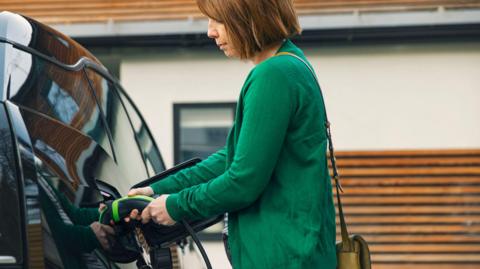There are flexibilities in the current system, allowing manufacturers that can’t meet the targets to buy "credits" from those that can.
In practice, this means buying credits from companies such as Tesla or Chinese firm BYD, which build electric models exclusively.
Manufacturers argue that demand for electric cars has not been as high as was expected when the rules were drawn up.
As a result, to avoid fines, they say they are having to discount new vehicles heavily, or subsidise rivals that build electric cars only, none of whom have a manufacturing base in the UK.
Sales of electric cars have been increasing. In October, they made up one out of every five cars registered. However, industry sources insist this is largely down to unsustainable discounting.
Reynolds told an industry audience at a dinner hosted by Society of Motor Manufacturers & Traders (SMMT) on Tuesday he is “profoundly concerned” about the way zero emissions policies currently operate.
“I’m going to be frank with you. I don’t believe the policies that we have inherited, and I mean specifically in relation to zero emission vehicles, are operating today in a way anyone intended them to," he said.
“In fact, I am profoundly concerned by how that is working at the moment.”
He said: "We know you need certainty and that’s why we will fast track that consultation, giving you clarity on the direction of travel and ensuring you have the answers you need in the coming weeks."
The SMMT has called for urgent government intervention to safeguard the sector, warning that weak demand for electric cars and the requirement to fulfil sales quotas had " the potential for devastating impacts on business viability and jobs".
